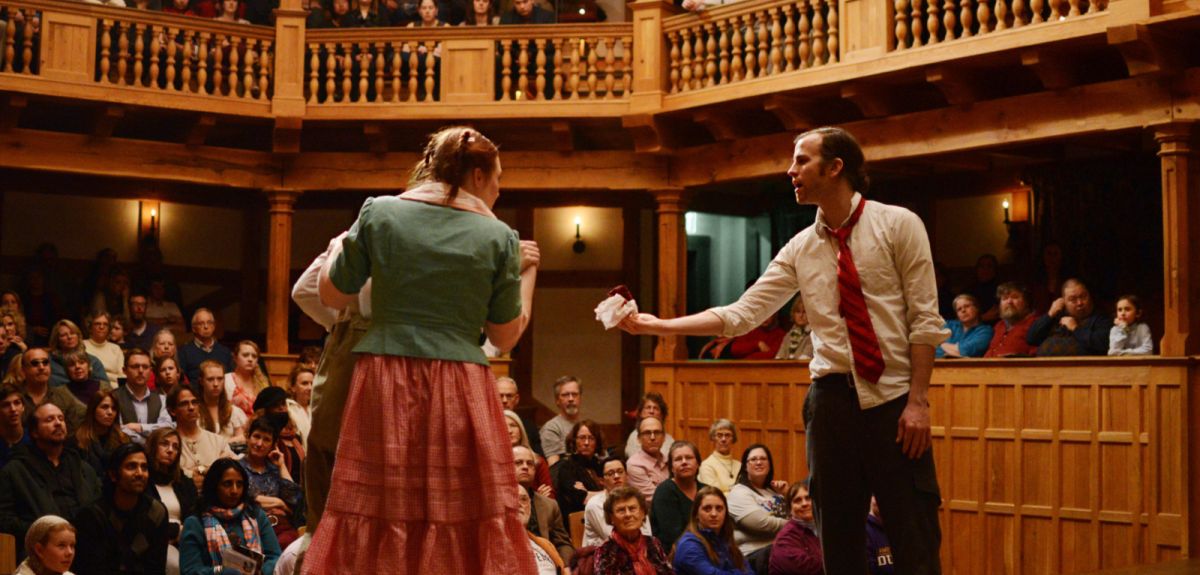
The Oxford academic helping actors to perform Shakespeare without rehearsing
An Oxford academic is working with an American theatre company to test her research into how actors would have rehearsed in the time of Shakespeare.
In a book published in 2000, Tiffany Stern presented new information about the way plays would have been rehearsed in Shakespeare’s time. Since then, Professor Stern of the Faculty of English Language and Literature has been working with a theatre company which is following this model.
'A lot of people have investigated how actors performed in Shakespeare’s time, but not how they rehearsed,' Professor Stern said. 'Companies put on different plays every day because London was too small to sustain audiences for the same play. They might put on forty different plays in a season so there is no way they could rehearse each play for four weeks the way actors do today.
'Surviving parts from actors of the time reveal that they were given only their own speeches and their cues, so they would have learned their lines without knowing the full, detailed picture of the play. This makes a lot of sense because paper and scribes were expensive and there was no copyright so, if a full manuscript of your play fell into the wrong hands, someone else could perform your play.'
Having published this research, Professor Stern then learned that some theatre companies were already adopting it. She was contacted directly by the American Shakespeare Centre in Staunton, Virginia, USA.
Professor Stern explains: 'I went to talk to the ASC and meet the actors and since then we have struck up a mutually beneficial relationship. It’s given me a laboratory to test ideas about how actors would have rehearsed and performed in Shakespeare's time.
'I was interested in the texts actors read aloud on stage to save them having to learn some lines – for example, when they read out a fictional letter. I asked the actors in Stanton about this and they tried it out and came back to me to suggest that actors would have written letters out themselves.
'They explained it is hard to read alien handwriting on stage for the first time -- while writing the words in advance would help them to approximate what was said if they were given the wrong document on the night! I then found evidence that this was the case.'
She added: 'They also came up with a number of other ways that actors could have saved themselves from rote learning all their lines, for example using hats and other props to secrete text.'
Professor Stern said this model of producing plays may be beneficial for the future of performances for small Shakespeare companies. She said: 'I think we will see more and more companies start to put on plays in this fashion, partly because it saves their paying for a director, but also because it gives their actors a lot more autonomy and responsibility.
There are also artistic advantages to an actor only learning their own part. Professor Stern said: 'If your part is a humorous one, or you have a comic line, then you will act comically. But if a modern actor is playing a humorous role within a tragedy, he or she is likely to act according to the mood of the play.
'If you perform having largely rehearsed just your own part, you are likely to deliver a much richer and more varied performance of the play.'
Professor Stern added: 'It also makes us look at Shakespeare's writing in a new way. He was conceiving plays not only as a full narrative arc, but as separate strips of text with their own internal logic.'